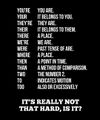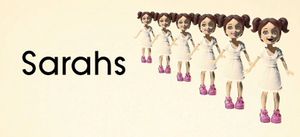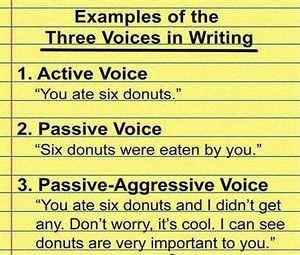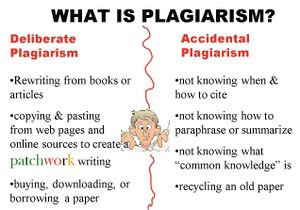TL;DR: Think you’re finished writing? Use this checklist to be sure before you publish.[1] |
No matter what the assignment, there are certain errors that should never be made. This checklist provides the very minimum you should check before publishing your writing or submitting it for evaluation.
All college writers, especially new ones, should be particularly careful about the following. One or two errors might be overlooked; more than that will cause you to lose letter grades, or worse: the respect of your online community.
This list is applicable for writing done for the screen, not paper, but might also be applicable for print forms as well.
Proofread
(If you do not want to read your writing, why should anyone else?) Did you use an appropriate style sheet?
Spelling

Look up words about which you are unsure, or at least use the spell checker. However, you should never trust a spell checker completely: they are never aware of context.
Also:
- its = possessive (think his and her to make sense of this rule);
- it’s = it is (a contraction).
Contractions
Avoid them in formal writing (don’t, won’t, it’s). If you use them, do it consistently. Online writing tends to be more informal, so this is just a consideration. Think about what contraction use says rhetorically before using them.
Possessives

Do not confuse with plurals and vice versa. Examples:
- singular possessive: society’s
- plural possessive: societies’
- plural: societies
- possessive: its (no apostrophe)
- contraction: it’s (meaning “it is”)
- singular: hero
- plural: heroes
- singular possessive: hero’s
- plural possessive: heroes’
Pronouns
Number (singular or plural) must agree with its antecedent (singular or plural). It is therefore wrong to write: “Each person has their biases” or “Everyone has their quirks.” The antecedent (“person” or “everyone”) is singular and therefore the pronoun deriving it must be singular: “Each person has his (or her) biases” or “Everyone has her (or his) quirks.”
Tenses
Do not switch back and forth from past to present tense; be consistent. When writing about cultural texts — literature, film, TV shows — always use the present tense.
Paragraphs
Use them. White space that breaks up large chunks of text make documents user-friendly. Generally, paragraphs for digital writing should be shorter than those written on paper, though shorter chunks of text are much more inviting to users regardless of the medium.
Do not run paragraphs together. Paragraphs should flow logically from one topic to another utilizing transitions.
Sentences
Every sentence must be a complete sentence. Do not run complete sentences together. When a sentence is complete, end it.
Narrative Voice

Use active-voice verbs as much as possible. In formal writing, do not refer to yourself with personal pronouns such as I, we, my, our, etc. Avoid the second-person pronoun (“you”) or including “the reader”; exceptions include emails, professional, and technical forms.
Quotations
Introduce all quotations with a colon. Short quotation may be integrated into the body of your sentence without punctuation. Block quote more than four lines of quoted material. Only quote when you cannot use your own words. Double-check your quotations for accuracy.
Margins and Fonts
When writing for paper, avoid large margins and fonts. They make it appear as if you are short on words and that you think you can slip a short paper past your professor. For the screen, careful not to make your font too small or your lines too long.
Plagiarism

Do not borrow another’s ideas without citing them. This includes quotations, conclusions, and paraphrases. Remember, even accidental plagiarism is still plagiarism and will be treated as such.
Punctuation
Confused about the proper use of the comma, colon, semicolon, dash, etc.? Consult your grammar textbook if you are unsure.
Mark Up
Did you use links correctly or did you lazily just paste an ugly URL in there? Check your mark up.
Proofread again
Seriously.
notes
- ↑ Borrowed and modified from a handout by Daniel Wells, USF.
